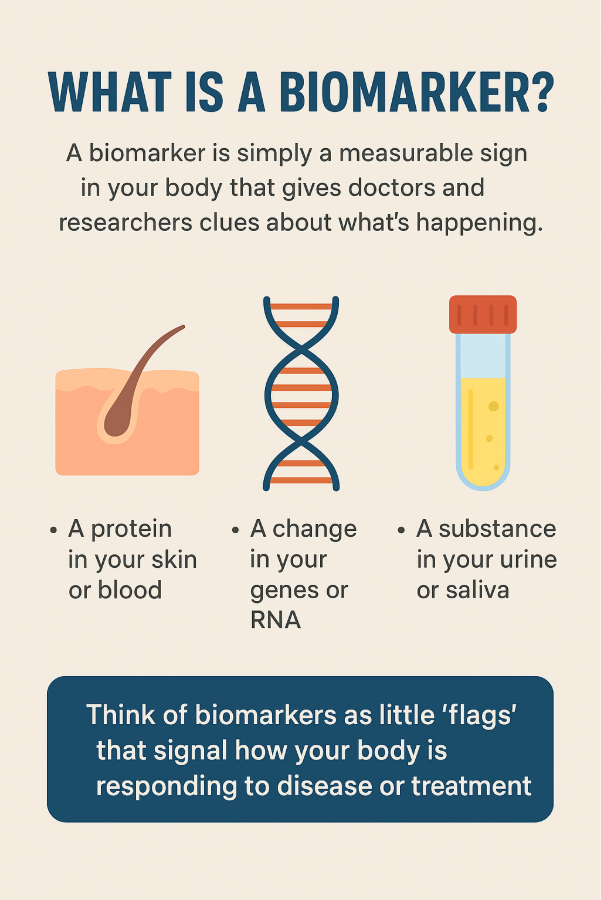If you’ve ever lived with a skin condition like eczema, psoriasis, or vitiligo, you know how frustrating treatment can be. Sometimes the cream or medication works, sometimes it doesn’t. For some people it helps a little, for others it doesn’t help at all. Why is that?
The answer lies in how unique each of our bodies are—and in how our biological systems respond. How we find, track and monitor these differences is through something scientists call biomarkers.
What is a Biomarker?

Why Biomarkers Matter in Skin Disease
Skin conditions are complex, and everyone experiences them differently. Biomarkers can help researchers and doctors:
- Diagnose more accurately: By checking biomarkers, doctors can spot whether symptoms are linked to eczema, psoriasis, or something else.
- Choose the right treatment: Instead of trial and error, biomarkers can point to medicines that are more likely to work for you.
- Track flare-ups: Biomarkers can show if a condition is getting better or worse—even before symptoms appear.
- Reduce side effects: If a drug isn’t likely to work based on your biomarkers, you can avoid unnecessary treatments.
Real-World Examples
In real-world studies, researchers have identified biomarkers that provide valuable insights into skin diseases. For example, in eczema (atopic dermatitis), certain blood biomarkers increase in line with disease severity—higher levels are seen in patients with more severe symptoms. In psoriasis, specific proteins can act as biomarkers to predict how severe the condition may become or to show whether a treatment is working. More recently, scientists have begun exploring new types of biomarkers, such as circular RNAs. These molecules are particularly promising because they are stable and may offer longer-lasting information to guide research and treatment decisions.
These discoveries are already helping researchers design better treatments.
What This Means for Research Volunteers
Biomarker research depends on human tissue samples. By donating skin, blood, or other tissue, you make it possible for scientists to discover and test these important “clues.” The more we learn about biomarkers, the closer we get to personalised medicine—treatments designed around everyone rather than one-size-fits-all solutions.
Help Shape the Future of Care
Every tissue sample donated brings us closer to a world where skin conditions are treated faster, more effectively, and with fewer side effects.
Want to play a part in making that future possible? Join our research volunteer registry today and help researchers unlock the power of biomarkers.
.jpg?width=1280&height=720&name=Untitled%20design%20(3).jpg)
.jpg?width=1280&height=720&name=Untitled%20design%20(3).jpg)